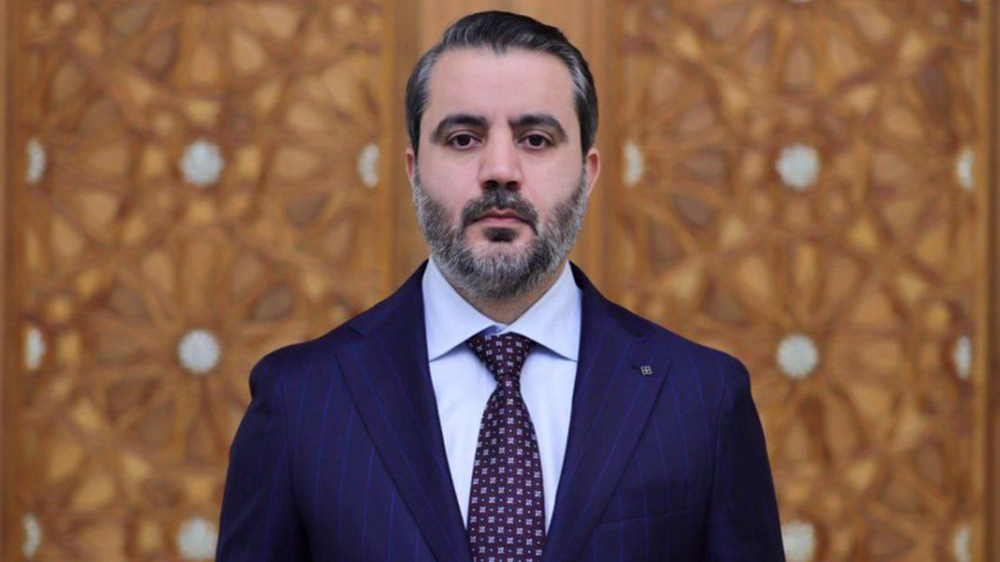US-led coalition bombs eastern Syrian town with white phosphorus munitions
The US-led military coalition, which is purportedly fighting the Daesh Takfiri terrorist group in Syria, has used white phosphorus munitions in a bombing raid against an area in Syria’s eastern province of Dayr al-Zawr, local media say.
Syria’s official news agency SANA, citing local sources, reported on Saturday that US-led military aircraft conducted a bombing attack with white phosphorus munitions on the farmlands of the town of Baghouz in the volatile province.
The US-led coalition and the so-called Syrian Democratic Forces (SDF), which is supported by Washington, claim that they are fighting against the Daesh militants in the Arab country and that Baghouz, which is the last pocket of territory controlled by remnants of the terror group, is constantly under their fire and expected to be liberated soon.
The flashpoint town is located in the eastern Euphrates River region.
The US-led coalition has been conducting airstrikes against what are said to be Daesh targets inside Syria since September 2014 without any authorization from the Damascus government or a UN mandate. Washington has long been providing the SDF -- a predominantly Kurdish alliance of militants -- with arms and militants, calling them a key partner in the purported fight against Daesh.
The so-called US coalition has in several occasions used internationally banned white phosphorous against various positions in the Arab country, particularly in Dayr al-Zawr province, drawing condemnations from Damascus.
On November 5 last year the US-led warplanes used white phosphorus bombs against Hajin, located some 110 kilometers east of the provincial capital city of Dayr al-Zawr, Sana reported.
On October 13, SANA also reported that the US-led coalition had dropped internationally-banned white phosphorus bombs on Hajin. On September 8, two F-15 warplanes of the US Air Force targeted the same Syrian town with white phosphorous bombs.
In June 2017, Human Rights Watch (HRW) warned that the US-led coalition was deploying white phosphorous bombs in both Iraq and Syria.
On Friday, the Organization for the Prohibition of Chemical Weapons (OPCW) said in a report that chlorine was likely used in a suspected gas attack in Syria's Douma in April 2018.
The use of chlorine by foreign-backed terrorists is a long-known fact, while nerve agents are usually attributed to the Syrian government which surrendered its entire chemical stockpile in 2013.
The chemical weapons watchdog, however, did not assign blame for the incident on a Douma suburb last year.
The Douma attack occurred at a time when the Syrian army was about to win the battle against the foreign-backed militants there. Witnesses said at least 43 people were killed in the incident.
However, Western states were quick to blame Damascus for the attack, which the Syrian government strongly rejected.
One week after the suspected gas attack, the US, Britain and France launched a coordinated missile strike against sites and research facilities near Damascus and Homs.
Syria and its allies, including Russia and Iran, saw the attack as a bid to prop up terrorists, faulting the invaders for ignoring Syria's repeated requests for an international probe into the incident.
Since March 2011, the Arab country has been gripped by a militancy that has largely wound down.
American warplane downed after Yemeni attacks 'baffled' US air defense: Ansarullah
VIDEO | Yemenis praise the military for its successful operations against Israel
VIDEO | Israel continues to bomb Gaza homes
VIDEO | An insider's view of the country: Meybod City in Yazd
‘All wars have rules. All of those rules have been broken’ by Israel
VIDEO | Report flags India’s violation of rights of Rohingya detainees
Turkey's foreign minister meets Syria's de facto leader in Damascus
VIDEO | US Syria plots












 This makes it easy to access the Press TV website
This makes it easy to access the Press TV website